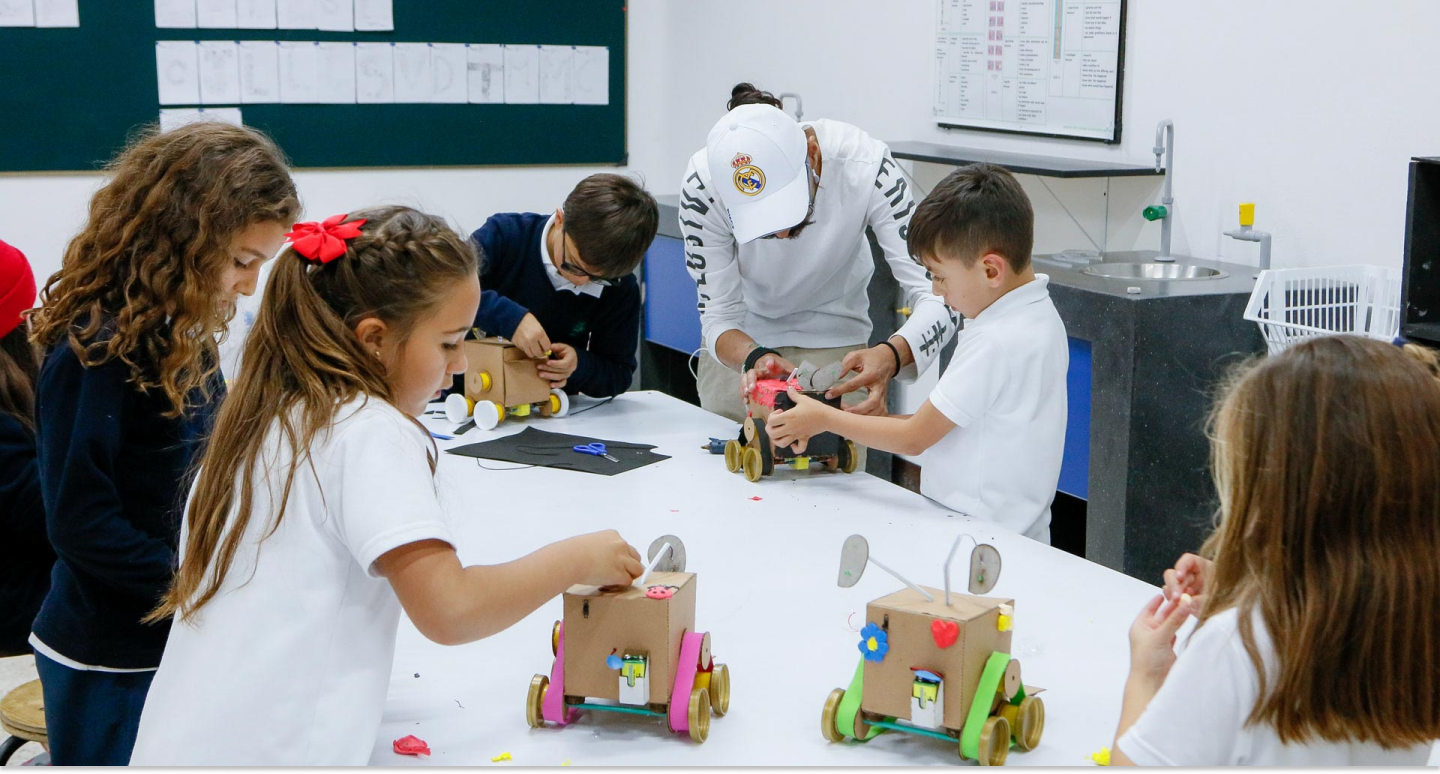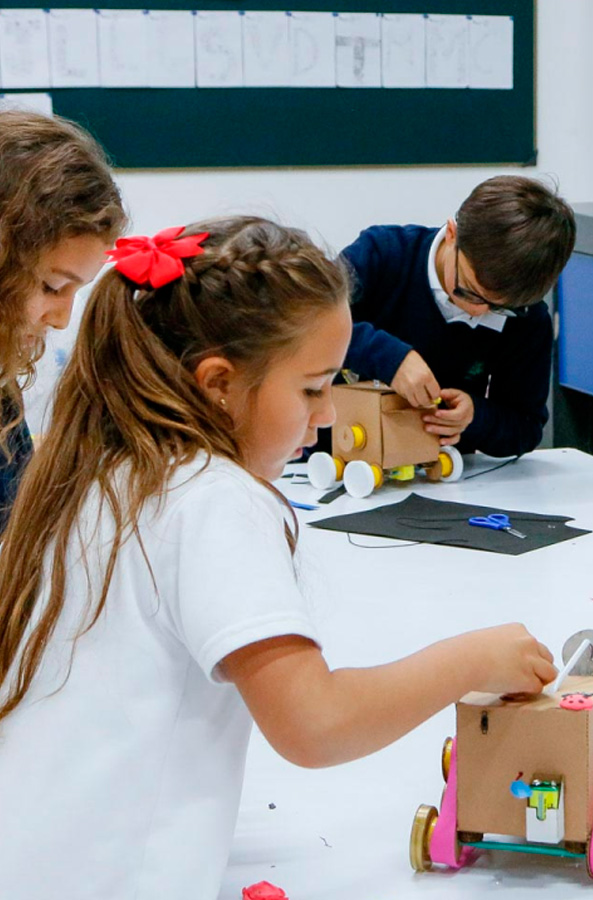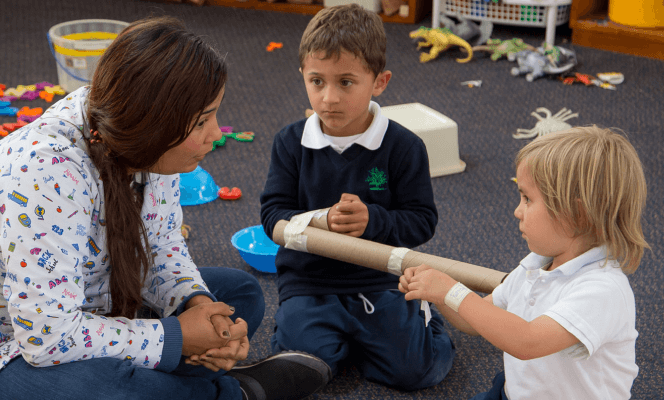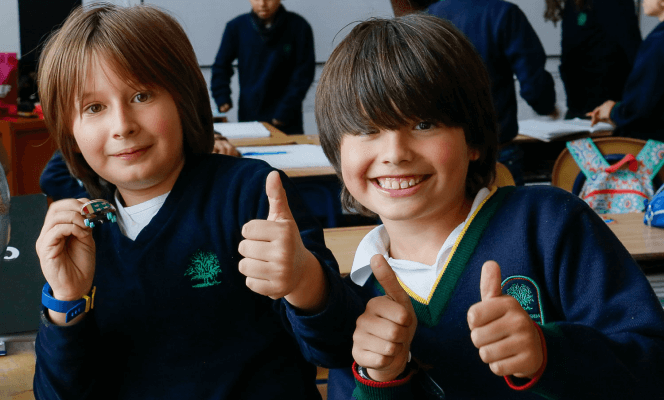Promoting initiative, curiosity and interest in discovering the world.
Questioning induces the search for answers, to see issues from different perspectives, to problematize themes and situations, to explore, experiment, test, analyze and scrutinize, inventing and creating feasible and innovative solutions.
Project-based learning helps students examine their experiences to develop critical thinking and be open to change, so not only do we believe in active learning, but we have adopted an approach that uses science, technology, engineering, arts and mathematics (STEAM) as entry points to guide inquiry and dialogue.
In addition, we have collaborative spaces where students gain hands-on experience with new technologies and innovative processes.
Our projects cover a wide variety of topics with a focus on caring for the planet and the responsibility of living in community.
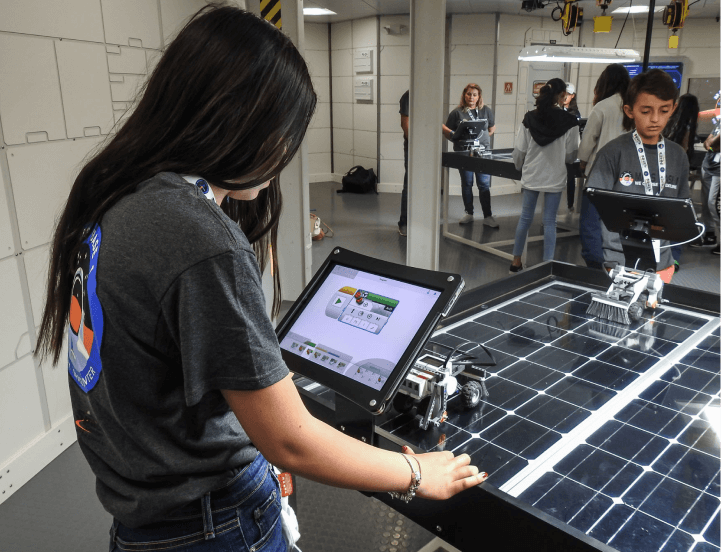
Plan - Do - Review
A consistent daily routine allows children to plan, execute and review actions through a process of “plan, do and review”.
Each student, from their interests and tastes, makes a plan about what they want to work on, carries it out through observation, inquiry, documentation and experimentation and, finally, shares and reviews their learning with their peers and teachers.
STEAM
Gaining hands-on experience to design and develop projects through science, technology, mathematics and creativity.
For students, projects are opportunities to explore their interests, put their skills into practice, connect knowledge, exercise their autonomy, and at the same time develop their social skills to collaborate and co-create with others.
School Environmental Project PRAE
At Los Alcaparros, the PRAE, is the sum of each program, project and action for nature and its different manifestations. Our goal: to recognize, analyze and act on areas of attention or problems of our immediate, local, regional, national and global environment.
The various projects and groups that make up our PRAE include: GRULAC Junior (Latin American and Caribbean Youth Group), the OPOC- Our People Our Climate project, in partnership with the University of Minnesota and the Environmental Secretariat of La Calera, the Bogotá River Project, the Sponge Project, and the Jaguars, protectors of water. Semiannual or annual projects, with daily actions of waste collection, restoration of native flora, biodiversity care, sustainable consumption practices among other activities are part of the PRAE.
Paramo Project
Our commitment to protect the paramo. The moors in various forms (frailejones, shrubs, fog, flora, soil, among others) trap CO2 and capture water to distribute it according to weather and climatic conditions, so they act as sponges essential for the life of all species.
Alcaparros is located near the Paramo and the Chingaza system and commits us as an institution and our students to act for this ecosystem.
In middle school, through interdisciplinary activities and projects of protection and action on high mountain ecosystems, in these projects we consider their relationship with the population, the impact on the territory, its biodiversity, the effect of climate change and specifically the attention and care of the water sources provided by the paramo.
GRULAC Junior
A network of young people focused on providing transformative actions and forming leaders aware of their situation in the region and the world.
It brings together around 200 young people from different regions of Colombia and delegates from countries such as Argentina, Mexico, Honduras, Costa Rica, Peru, Chile and Brazil. It is a working, discussion, negotiation and preparation group for the active participation of young people in United Nations conferences related to the environment and sustainable development that meets annually to work through delegations around a central theme.
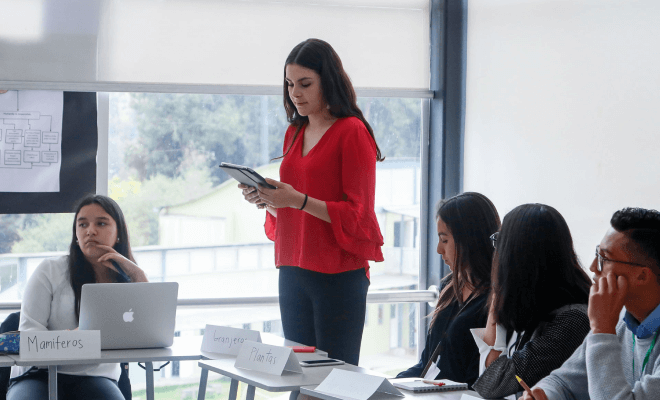
Preschool
In Preschool a project is developed each semester which is born from the concerns and questions that children have about the world, encouraging their initiative, curiosity and love for learning. Developing problem solving and research skills, putting into practice their social skills and consolidating in them a methodology that will accompany them throughout their developmental stages.
Elementary
In Elementary School, a project is developed each semester in which the students display their initiative and their taste for learning, develop scientific ways of thinking, find solutions to their questions, and put their social skills into practice. Expressing their findings aesthetically and valuing their learning processes.
Middle School
In Middle School, students annually carry out interdisciplinary projects, which they do in small groups or as a class as a whole. Students delve into a topic or problem of interest to them in which different areas of knowledge converge. They put into practice research, analysis and problem solving skills.
High School
In high school, the project methodology that students have practiced since kindergarten 4 is incorporated into the daily work of the various subjects. In ninth and tenth grade, students carry out one project per year based on their interests around a common problem that articulates different disciplines and involves proposals for its solution. In eleventh grade, students carry out a degree project in relation to their inclinations for further studies that exposes the logical, aesthetic and ethical implications of what they have studied.










